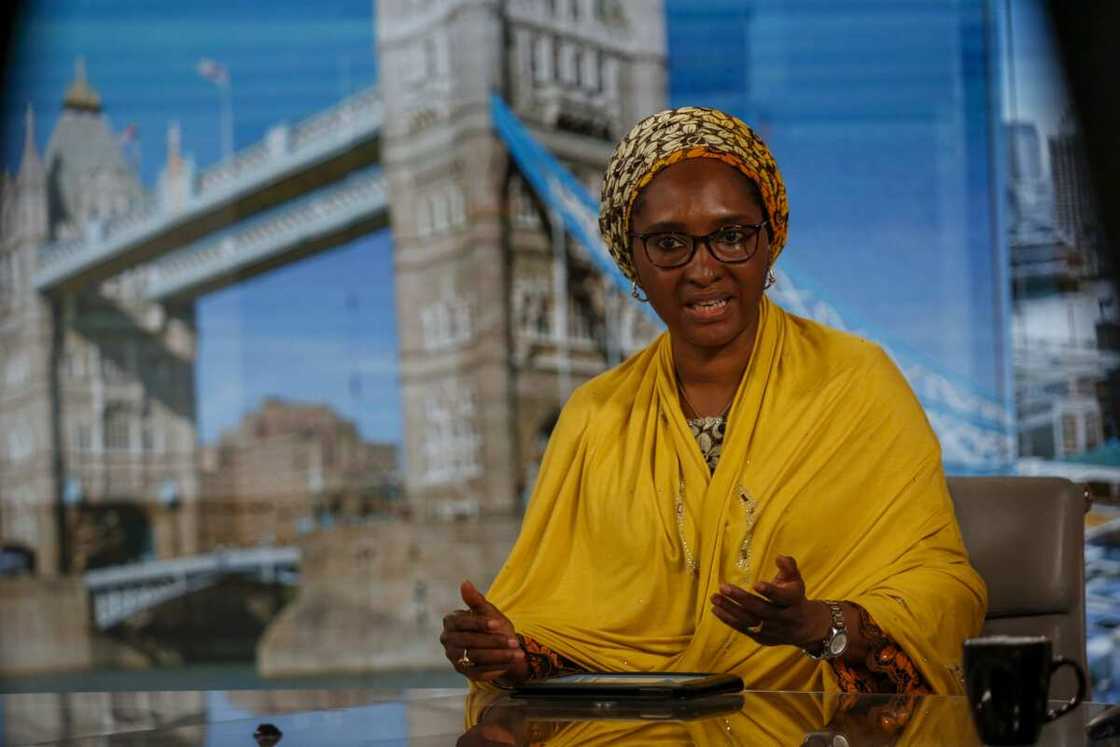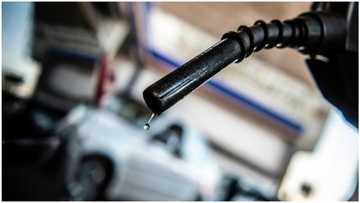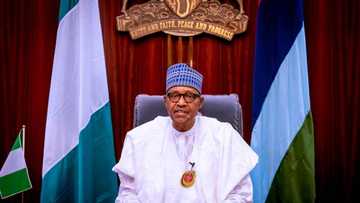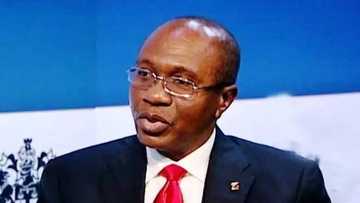Subsidy Removal and 3 Other Tough Economic Decisions by FG That May Impact You Heavily in 2022
- There are tough economic decisions that the Nigerian government has lined up in 2022, all of which aims at the citizens
- The year ahead is predicted to be difficult as the government plans to dig into the pockets of Nigerians to make more money
- Among the decisions by the federal government are an aggressive tax drive and fuel subsidy removal which many fear may worsen things
PAY ATTENTION: Click “See First” under the “Following” tab to see Legit.ng News on your Facebook News Feed!
Nigerians are bracing for a difficult 2022, the year President Muhammadu Buhari-led government will be at the cusp of exiting Aso Rock.
As Buhari's government scrambles for more money to service mounting debts, it will thrust deep into the pockets of Nigerians in the year ahead.

Source: Getty Images
The government has consistently maintained that it has lean resources to cater to the ever-exploding population in the country.

Read also
Subsidy removal: Northern groups threaten protests, reject increase in petroleum pump price
It will scrape through every available avenue to make more money to service more debts, keep the bloated civil service oiled until it bows out in 2023 - all on the back of the already-burdened Nigerians dealing with double-digit inflation, a 33 per cent unemployment rate, and a high cost of living.
PAY ATTENTION: Install our latest app for Android, read best news on Nigeria’s #1 news app
Buhari and his cabinet battle to confront unabating security challenges - 23 people were said to have been burnt when their bus was targeted by bandits in Sokoto last week - the struggle Nigerians are facing is that of a government aiming at their already depleted income.
Fuel subsidy is going
The measures, as announced in several quarters by the federal government, includes stopping subsidy on petrol. The government has been unequivocal about its plans to stop the petrol subsidy.
N5,000 transport palliative
But the government says it will cushion the effect of subsidy removal by paying poor Nigerians N5,000 stipend monthly for the first six months. This measure has been kicked against by civil society and labour which rejected it as peanuts.
Compulsory TIN for bank account holders
If the new Finance Bill being proposed by Buhari’s government is passed into law, it will see the Nigerian government embark on an aggressive tax drive as it scrounges for revenue to service a debilitating debt profile.
The proposed new Bill will empower the tax agency in Nigeria to snoop into the bank accounts of Nigerians as it will become mandatory for account holders to obtain a Tax Identification Number (TIN). It will become compulsory for individuals seeking to open a new bank account to obtain a TIN from the Federal Inland Revenue Service (FIRS).
The new bill, if passed, will see Nigerians shuttling between FIRS offices to their banks in order to open or operate their bank accounts, much like the hassles they had to through to obtain and link their National Identity Number (NIN) to SIM cards in 2021.

Read also
Petrol price rises to N531 in Zambia as govt removes fuel subsidy for loans, while Nigerians wait for 2022
Electricity Tariff will increase
Alongside the removal of subsidies on petrol, electricity providers will increase their costs from January 2022 as the federal government also withdraws subsidies from the electricity sector.
According to the Guardian, The government had pegged most of its subsidy payments in the sector at N30 billion monthly.
Vice President Yemi Osinbajo said at the opening of the 14th Nigerian Association for Energy Economics (IAEE) conference in Abuja recently that the government expected the electricity sector to generate its revenue from the power sector market.
Already, the electricity sector is one from which Nigerians wants massive improvements. The recent increase saw Nigerians groaning and most of the consumers remain without meters.
If the price of electricity is increased further, it will impact goods and services because manufacturers will also increase the cost of manufactured products. This will have a ripple effect on transportation, food and other services which rely heavily on electricity to thrive.

Read also
Uber, Bolt in trouble as House of Reps moves to probe ride-hail businesses in Nigeria over tax compliance
Aggressive VAT drive
The Nigerian government says it will embark on an aggressive drive for Value Added Tax (VAT) which was increased from 5 per cent to 7.5 per cent and saw inflation skyrocket.
Reports from the Vanguard said this forms part of the 2022 fiscal policy plan which is also reflected in the Appropriation Act presented to the National Assembly by the executive arm of the government.
The federal government is also expecting to rake in N29.3 billion as charges from electronic money transfers, a new revenue line it hopes to implement in 2022 under the aggressive tax revenue drive. Already the VAT has impacted goods like cooking gas and others which have seen Nigerians reeling from hardship.
In 2022, brace up, Nigerians.
Group wants subsidy removed
Meanwhile, Legit.ng reported that the forum of Civil Society Organisations in Nigeria made up of over 100 community-based organisations, and grassroots-oriented institutions on Thursday, December 2, rose up from an extraordinary meeting and backed the federal government's plan for fuel subsidy removal.
The inclusive leadership meeting, after painstaking and intellectually stimulating deliberations, resolved to comprehensively and compositely support the Buhari administration on the move, adding that the policy will take Nigeria to the realm of fulfilled potentialities.
A communique was released after the meeting signed by Comrade Friday Maduka, chairman, Forum of Civil Society Organisations of Nigeria.
Source: Legit.ng




